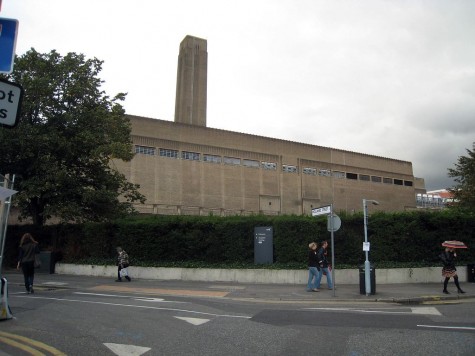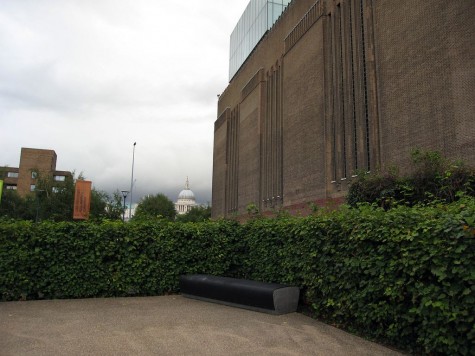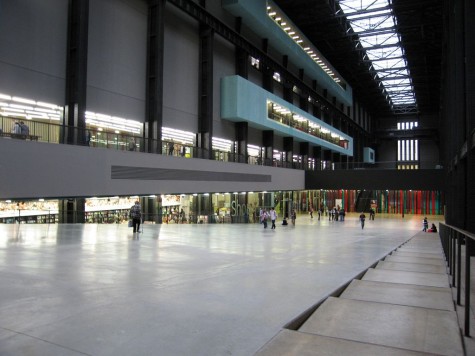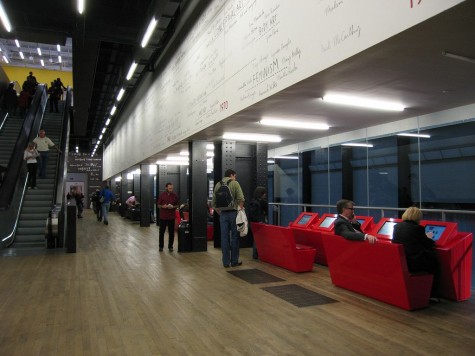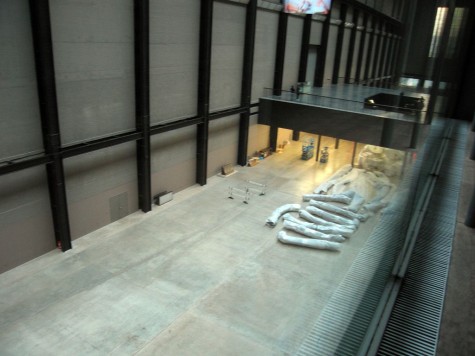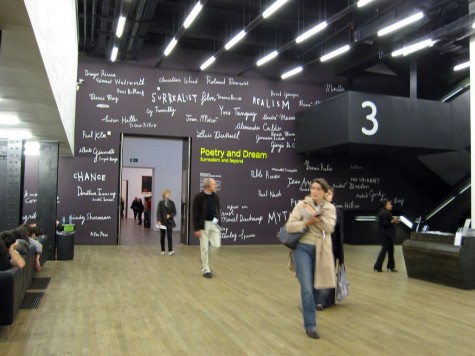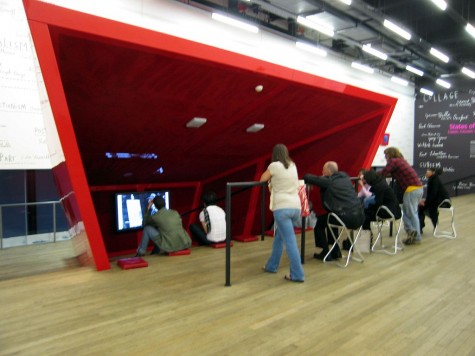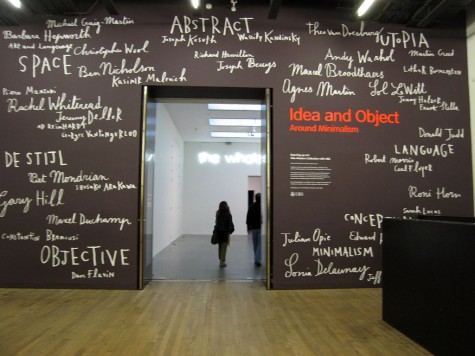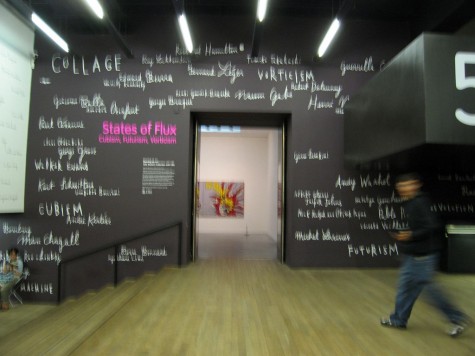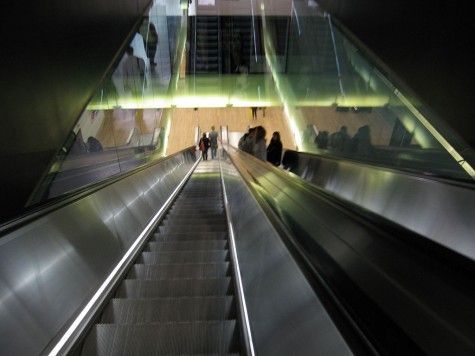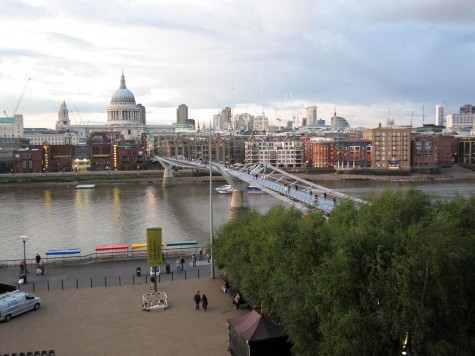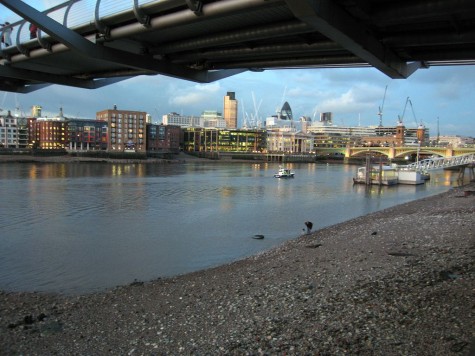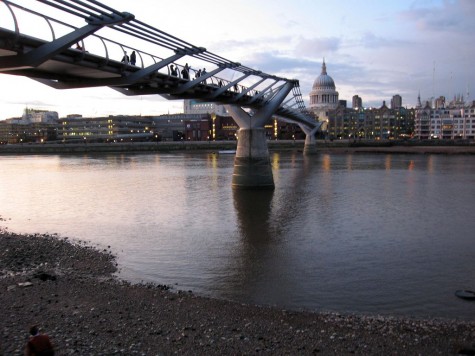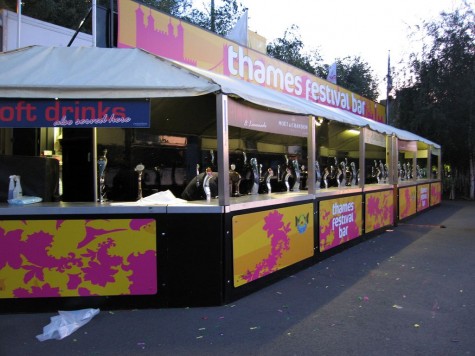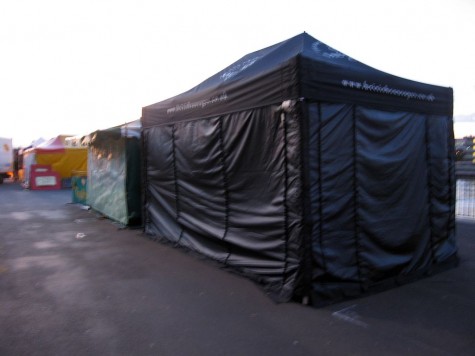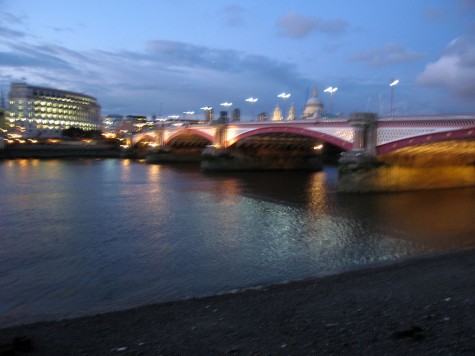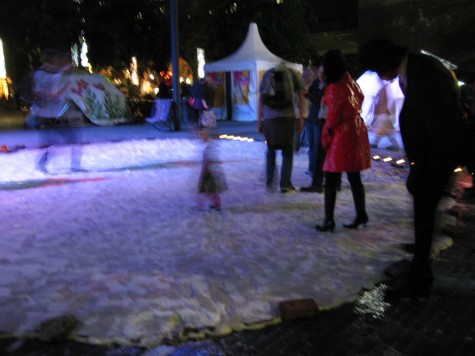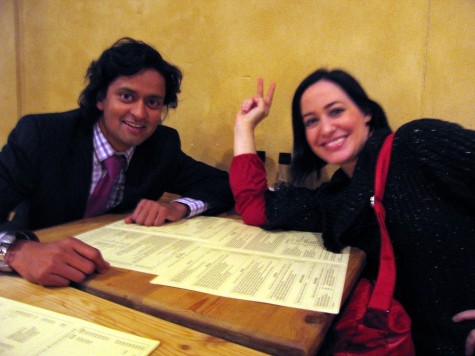Walking around to the west side of the building, I could see the dome of St. Paul’s Cathedral in the distance.
From the west side, the entry of to the Tate Modern is down a long ramp.
The ramp continues inside the building into the Turbine Hall.
The galleries are on the upper floors. I went up to Level 3, and saw some red benches with display terminals.
Coming around the corner, I could look down onto the east end of the Turbine Hall. When I was on the ground floor, I hadn’t realized that exhibits were being set up behind the curtains.
On the Level 3, at one end of the hall is the collection titled Material Gestures, with works from the 1940s and 1950s.
At the other end of the hall is the “Poetry and Dream” collection, including the Surrealists.
Up the escalator, to Level 5, I found a small theatre with in a red enclosure in the centre of the hall.
At one end of Level 5 is the “Idea and Object” collection, of abstract minimalism.
At the other end of Level 5 is “States Of Flux“, with early 20th century movements such as Cubism.
After strolling through the exhibits, I took the escalators down to catch the last bit of daylight outside.
I took the elevator back up to Level 2 for a view of the Millenium Bridge over the River Thames from the cafe terrace. It’s a pedestrian-only bridge, and full of workers crossing home at the end of office hours.
I walked outside, down to the shore. Looking east, there were a lot of cranes over the London skyline, signaling ongoing construction.
Due north across the Millenium Bridge is St. Paul’s Cathedral.
I walked west along the Thames. Looking back over my shoulder, I saw the Tate Modern in the dusk.
Kiosks were being set up for the Thames Festival 2008 starting the next day.
With the number of beer taps at the bar, I could imagine lineups when the festival operates.
Some of the stalls had been set up during daylight, and zipped up for the evening.
I continued west by the Blackfriars Bridge as a train crossed over it.
The sun was almost completely set by the time I reached Waterloo Bridge.
Wandering into the park, I was entertained to find a group of Koreans on an open air stage, rehearsing for the next day.
Dav finally finished off his project at the office, and coordinated with LJ to meet me walking west. As we looked for a restaurant, we found an area covered with foam on top of plastic, that children (and some adults) were shuffling through.
After deciding to have Japanese dinner at Wagamama, we had desserts at Le Pain Quotidien.
This was a rare day of leisure for me, enjoying the sights of London. Dav and LJ made sure that I found my way back to Victoria station, to catch the train back out to Purley that evening. The next morning, my hosts Scott and Greg remarked that they were wondering whether they should have been worried that I was out so late. I had to admit that I was having such a good time — and that I’m out late so rarely these days — that it didn’t occur to me to phone home!

